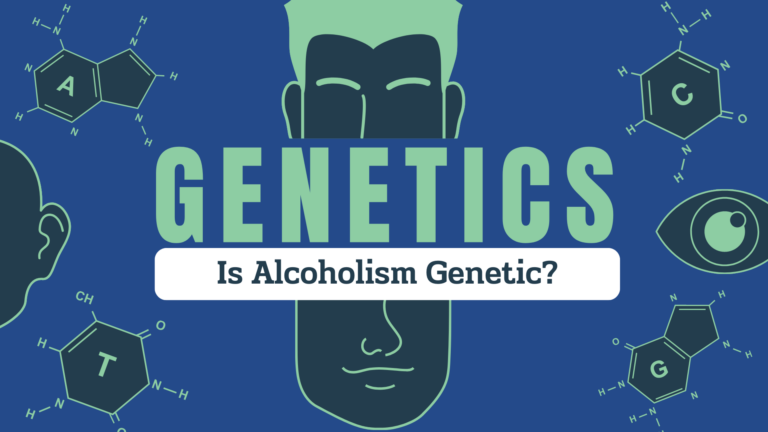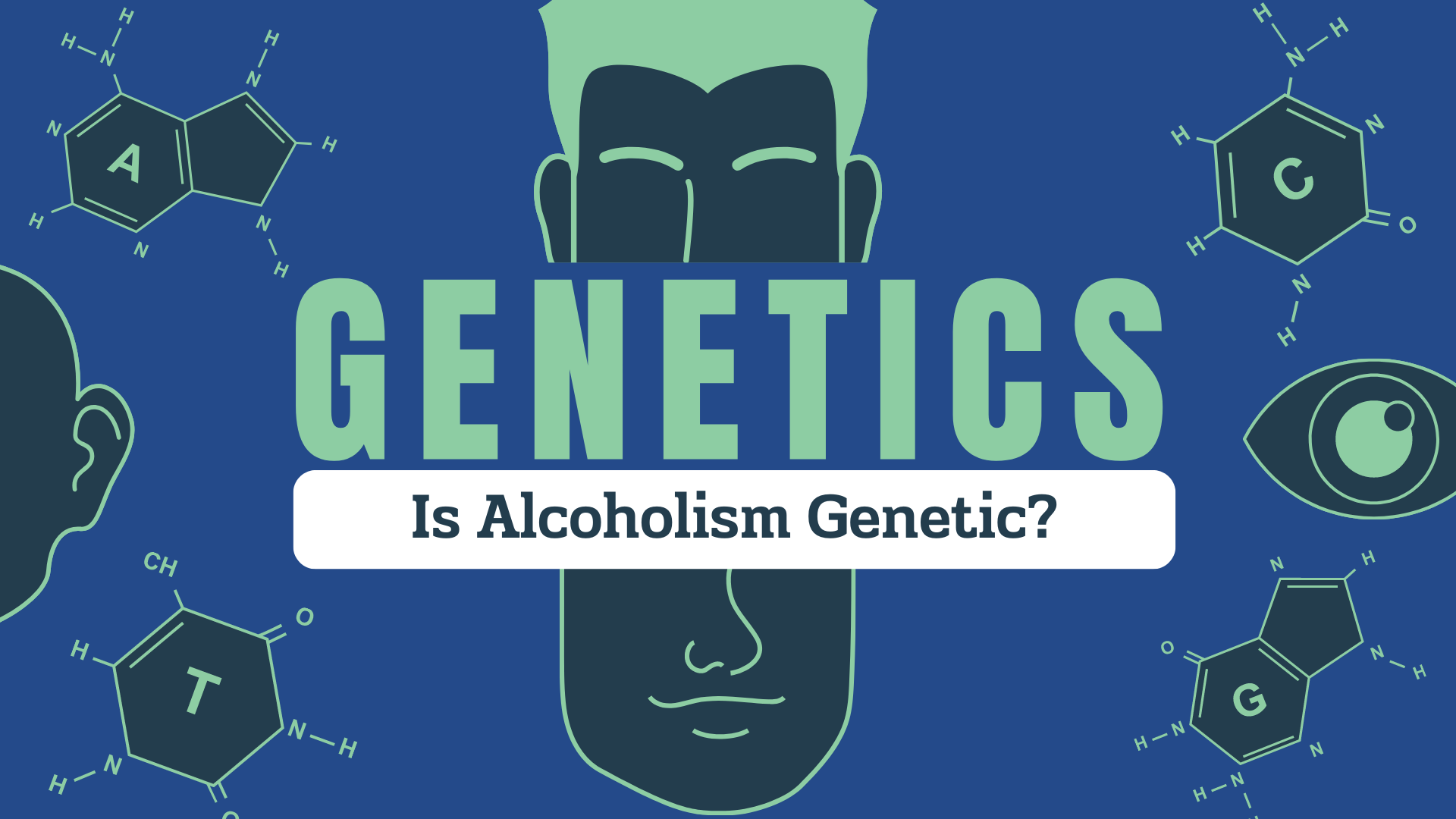
Is Alcoholism Genetic? Exploring the Role of Genetics in Alcohol Addiction
Alcoholism is a chronic disease that affects millions of people worldwide. It is characterized by an uncontrollable urge to consume alcohol despite its negative consequences on an individual’s health, relationships, and social life. While the causes of alcoholism are complex and multifactorial, one of the most debated topics is whether it has a genetic basis.
Studies have shown that genetics plays a significant role in the development of alcoholism. Research has found that children of alcoholics are four times more likely to develop alcoholism than those without a family history of the disease. Moreover, twin studies have revealed that genetic factors account for approximately 50% of the risk of developing alcoholism. However, genetics alone cannot explain the entire picture of alcoholism, as environmental and social factors also play a crucial role.
The Genetics of Alcoholism
Genetic Factors and Inheritance Patterns
Alcoholism is a complex disease that is influenced by both genetic and environmental factors. Studies have shown that genetic factors contribute to approximately 50-60% of the risk for developing alcoholism. The genetic factors that contribute to alcoholism are not yet fully understood, but research has identified several genes that may play a role.
One of the most well-known genes associated with alcoholism is the ADH1B gene. This gene encodes an enzyme that is involved in the metabolism of alcohol. People with a variant of this gene that results in a more efficient metabolism of alcohol have been found to have a lower risk of developing alcoholism.
Other genes that have been associated with alcoholism include the GABRA2 gene, which is involved in the regulation of the neurotransmitter GABA, and the OPRM1 gene, which encodes the mu-opioid receptor. These genes have been found to be involved in the reward pathways of the brain, which may contribute to the development of addiction.
Inheritance patterns for alcoholism are complex and involve multiple genes. Studies have shown that alcoholism tends to run in families, and children of alcoholics are at a higher risk of developing the disease. However, it is important to note that not all children of alcoholics will develop alcoholism, and many people with no family history of alcoholism can still develop the disease.
Identifying Genetic Markers
Identifying genetic markers for alcoholism is an important area of research, as it may lead to the development of new treatments and prevention strategies. One approach to identifying genetic markers is through genome-wide association studies (GWAS), which look for common genetic variants that are associated with alcoholism.
Another approach is through the study of epigenetics, which involves the study of changes in gene expression that are not due to changes in the DNA sequence. Epigenetic changes can be influenced by environmental factors, such as alcohol consumption, and may play a role in the development of alcoholism.
Overall, while the genetics of alcoholism are complex and not yet fully understood, research has identified several genes that may play a role in the development of the disease. Identifying genetic markers for alcoholism is an important area of research that may lead to new treatments and prevention strategies.
Environmental Influences on Alcoholism
Family and Social Environment
Family and social environment can play a significant role in the development of alcoholism. Research suggests that individuals who grow up in families with a history of alcoholism are more likely to develop alcohol use disorders themselves. This could be due to genetic factors, but it could also be influenced by environmental factors such as family dynamics, cultural beliefs, and peer pressure.
Children who grow up in households where alcohol abuse is prevalent may be more likely to view drinking as a normal and acceptable behavior. This normalization of alcohol use can increase the likelihood of alcohol abuse and dependence later in life. Additionally, children who experience neglect, abuse, or other traumatic experiences within their family or social environment may be more likely to turn to alcohol as a coping mechanism.
Life Experiences and Stress
Life experiences and stress can also contribute to the development of alcohol use disorders. Stressful life events such as job loss, divorce, or the death of a loved one can trigger an individual to turn to alcohol as a means of coping. Additionally, individuals who experience chronic stress or trauma may be more likely to use alcohol as a way to self-medicate and alleviate their symptoms.
It is important to note that not all individuals who experience these environmental factors will develop alcohol use disorders. However, these factors can increase the likelihood of developing problematic alcohol use patterns. Understanding the role of environmental influences on alcoholism can help individuals and healthcare professionals develop effective prevention and alcohol treatment strategies.
Interplay of Genetics and Environment
Gene-Environment Interactions
Research has shown that both genetics and environmental factors play a role in the development of alcoholism. However, the exact interplay between the two is still not fully understood. Studies have found that certain genetic variations may increase an individual’s susceptibility to alcoholism, but only in the presence of certain environmental factors such as stress, trauma, or social influences.
For example, a study found that individuals with a certain variation in the GABRA2 gene were more likely to develop alcoholism, but only if they experienced high levels of stress in their lives. Another study found that individuals with a variation in the ADH1B gene were more likely to develop alcoholism, but only if they lived in cultures where alcohol consumption was common and accepted.
Epigenetics and Alcoholism
Epigenetics is the study of how environmental factors can influence gene expression without actually changing the DNA sequence. Epigenetic changes can occur in response to a variety of environmental factors, such as stress, diet, and exposure to toxins. These changes can then be passed down to future generations.
Recent research has suggested that epigenetic changes may play a role in the development of alcoholism. For example, a study found that individuals with a history of alcohol abuse had different patterns of DNA methylation (an epigenetic modification) in certain genes compared to individuals without a history of alcohol abuse.
Overall, the interplay between genetics and environment in the development of alcoholism is complex and multifaceted. While certain genetic variations may increase an individual’s susceptibility to alcoholism, environmental factors such as stress, trauma, and social influences also play a crucial role. Epigenetic changes may also contribute to the development of alcoholism. Further research is needed to fully understand the interplay between genetics and environment in the development of alcoholism.
Assessment and Management
Screening for Genetic Predisposition
Screening for genetic predisposition to alcoholism can be a useful tool in identifying individuals who may be at a higher risk for developing alcohol use disorder. Genetic testing can help to identify specific genetic markers that are associated with an increased risk of alcoholism. However, it is important to note that genetic testing alone cannot determine whether an individual will develop alcoholism or not.
Prevention and Treatment Strategies
Prevention and treatment strategies for alcoholism can vary depending on the individual and their specific needs. For individuals who are at a higher risk for developing alcoholism, prevention strategies may include avoiding alcohol altogether or limiting alcohol consumption. For those who have already developed alcohol use disorder, treatment options may include behavioral therapy, medication, or a combination of both.
Behavioral therapy, such as cognitive-behavioral therapy, can be an effective treatment option for individuals with alcohol use disorder. This type of therapy focuses on helping individuals to change their thoughts and behaviors related to alcohol use. Medications, such as naltrexone and acamprosate, can also be effective in reducing cravings and helping individuals to maintain sobriety.
In addition to these strategies, it is important for individuals with alcohol use disorder to have a strong support system. This may include family, friends, or support groups such as Alcoholics Anonymous. With the right combination of prevention and treatment strategies, individuals with alcohol use disorder can successfully manage their condition and lead a healthy, sober life.
At Waterside Recovery Centers we pride ourselves on providing the top addiction treatment in Massachusetts. With a range of evidence-based, client-focused and individualized treatment offerings, we are able to provide the ideal support for those seeking recovery from substance addiction. Please feel free to reach out to our help line at anytime.
(833) 985-4234





